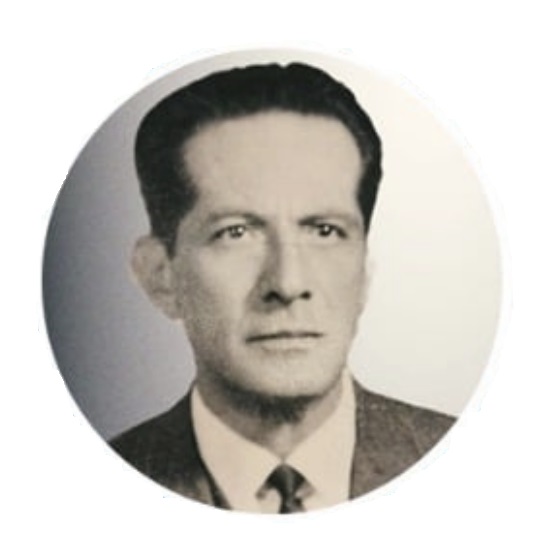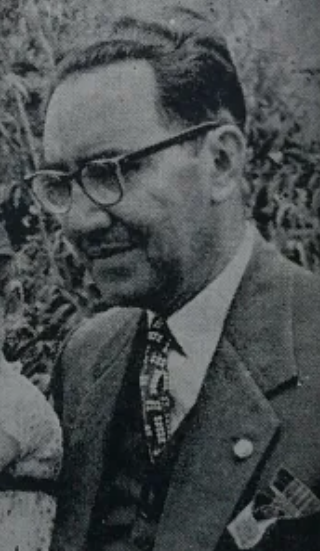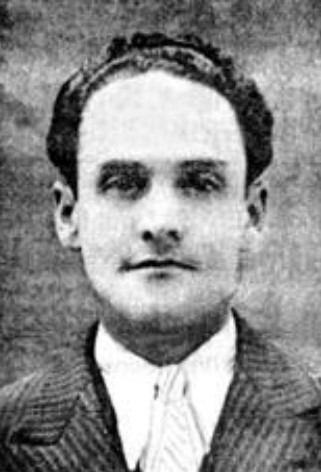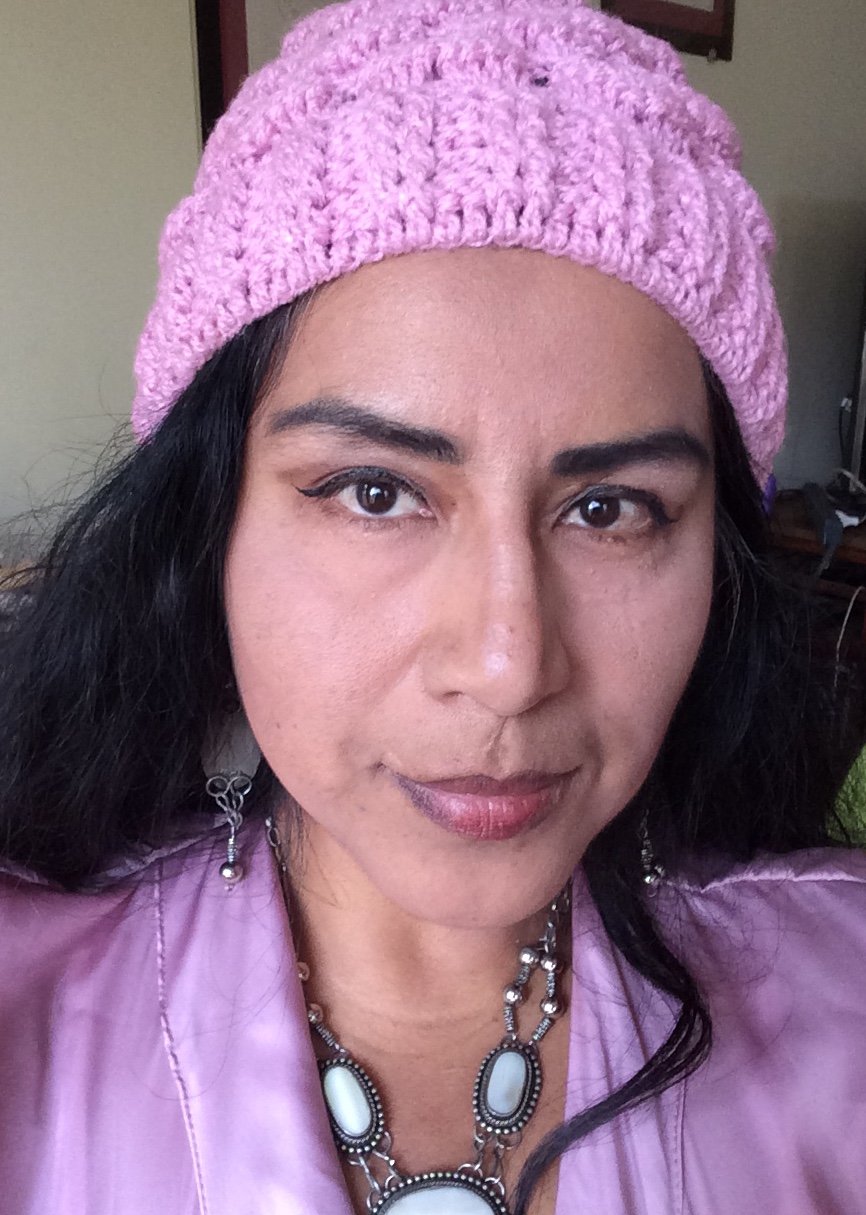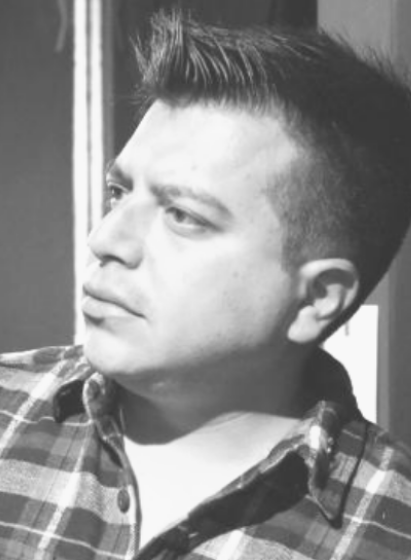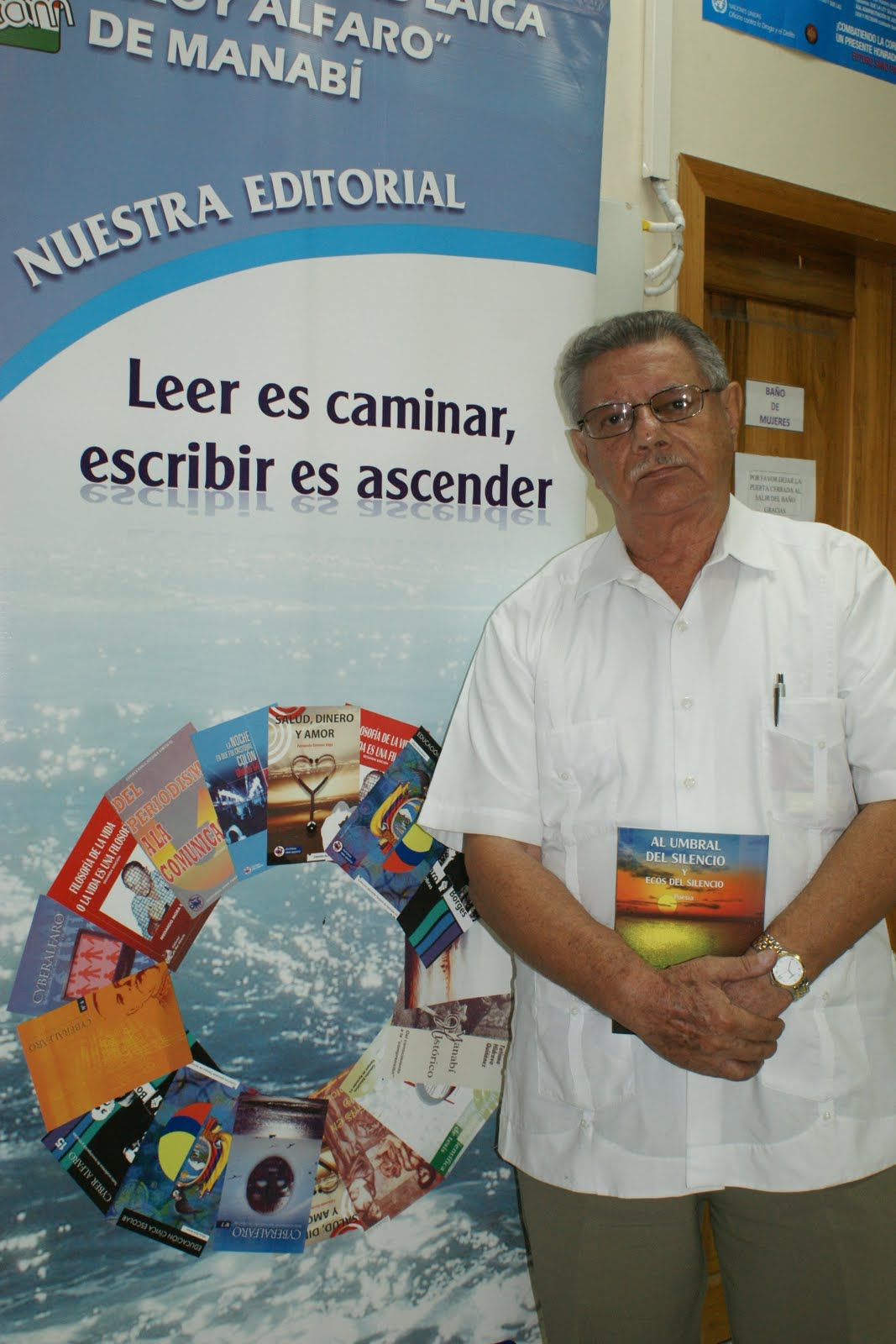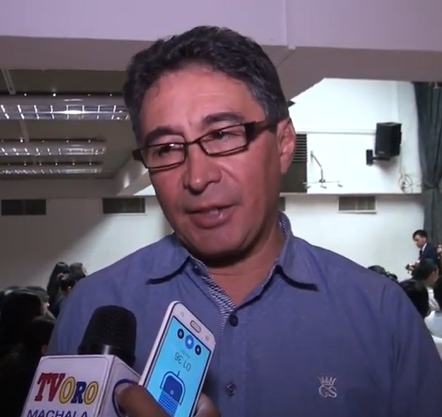Roberto Alfredo Arregui Chauvín (Guaranda, October 22, 1915 – date unknown) was an Ecuadorian educator, poet, and lawyer. He served as rector and professor of Literature and Philosophy at the Pedro Carbo School in Guaranda for thirty years and was a founding member of the Bolívar chapter of the Casa de la Cultura Ecuatoriana. His poetry, mainly published in magazines, earned him several local awards, including the Trébol de Oro y Plata at the Riobamba Floral Games. Arregui also published a legal treatise, De las presunciones, which won the prestigious “Luis Felipe Borja” award, highlighting his contributions to both literature and law.
Continue reading “Roberto Alfredo Arregui Chauvín”Month: September 2024
Luis E. Falconí Hidalgo
Luis E. Falconí Hidalgo (Guaranda, July 14, 1910 – September 1, 1989) was an Ecuadorian writer and poet known for his contributions to indigenista literature and his dedication to promoting culture in Bolívar Province. Educated in Guaranda and Quito, Falconí published novels such as Así Nació el Día (1958), a work rooted in Ecuadorian landscapes and indigenous themes, and La Casa Encantada (1981), which explores local legends. He also wrote children’s poetry, winning national recognition in 1980. His work was supported by institutions like the Casa de la Cultura Ecuatoriana, cementing his legacy in Ecuadorian literature.
Continue reading “Luis E. Falconí Hidalgo”Augusto César Saltos
Augusto César Saltos Jarrín (Guaranda, December 18, 1899 – Guaranda, August 26, 1976) was a prominent Ecuadorian lawyer, writer, and cultural advocate. He served as a member of the Supreme Court of Justice and was deeply involved in social justice, advocating for the rights of workers and indigenous peoples. A co-founder of the Socialist Party in Ecuador, Saltos also participated in international peace conferences. He was a prolific author, known for his dramas, such as El Minero (1940) and Queriendo ser Grande (1943), which addressed social issues, and for works on Ecuadorian history and folklore, including El Cacique Huaranga (1969). Saltos led the Bolívar branch of the Casa de la Cultura Ecuatoriana from 1952 to 1970.
Continue reading “Augusto César Saltos”Piedad Larrea Borja
Piedad Larrea Borja (Quito, December 21, 1912 – Quito, June 2001) was an Ecuadorian writer, poet, philologist, and professor. As the first woman to join the Academia Ecuatoriana de la Lengua (Ecuadorian Academy of Language), where she served as secretary for many years, she played a significant role in Ecuadorian intellectual life. She earned a doctorate in Hispanic Philology from the University of Salamanca and later taught at the Universidad Central del Ecuador. Her literary works, which include essays, poetry, and linguistic studies, address themes of Ecuadorian identity, language, and social issues. In 1994, she was awarded the prestigious “Manuela Espejo” Prize by the Municipality of Quito, further cementing her legacy as a pioneering figure in Ecuadorian culture and education.
Continue reading “Piedad Larrea Borja”Irving Iván Zapater
Irving Iván Zapater (Quito, 1944) is an Ecuadorian lawyer, historian, and cultural leader. He holds a Doctorate in Jurisprudence with postgraduate studies in Economics from La Sapienza University in Rome and in History from the Pontificia Universidad Católica del Ecuador. A long-time professor and former Vice Dean at the Faculty of Jurisprudence at his alma mater, Zapater also served as Director of the Central Bank of Ecuador’s Center for Research and Culture (1981-1993) and led the National Council of Culture (1999-2000). He has authored several notable works on Ecuadorian history and economics, including La Vida de Cada Día and Imágenes del Ecuador en el Siglo XX, and was Director of the Revista Nacional de Cultura.
Continue reading “Irving Iván Zapater”Antonio Montalvo Viteri
Antonio Montalvo Viteri (Ambato, March 24, 1901 – Quito, July 9, 1953) was an Ecuadorian poet, literary critic, and cultural figure who played a key role in shaping early 20th-century Ecuadorian literature. He co-founded the influential newspaper El Espectador in 1921, published his first poetry collection Alba de Ensueño in 1922, and later helped establish the literary magazine El Cosmopolita in 1924. A member of several intellectual societies, he also co-founded the Grupo América in 1931. His 1947 biography of Eugenio Espejo is regarded as one of the best on the subject, cementing his reputation as both a poet and a biographer.
Continue reading “Antonio Montalvo Viteri”Diego Montalvo
Diego Montalvo (Quito, 1995) is an Ecuadorian writer and journalist. He is a graduate of the Universidad de Las Américas (UDLA), where he studied journalism. Montalvo gained recognition in the literary world with his anthology Suspenso en Letras (2012), and he has been an active member of the literary and cultural community, serving in roles such as a member of the Academic Section of Literature of the Casa de la Cultura Ecuatoriana. In journalism, he has contributed to magazines like Leo and Emprendedores, and currently writes opinion pieces for La República, focusing on political and social issues.
Continue reading “Diego Montalvo”Kevin J. Enríquez Urresta
Kevin J. Enríquez Urresta (Quito, Ecuador, 2001) is an emerging Ecuadorian poet and architecture student who has gained recognition for his introspective and emotionally resonant poetry. While originally connected to various branches of the arts, he chose to dedicate himself to poetry around five years ago, using it as a means of self-expression and exploration. His work often delves into themes of identity, emotional connection, and fleeting moments of consciousness, as showcased in his debut book Destellos de conciencia, published as part of Editorial El Ángel’s “Ópera prima” collection.
Continue reading “Kevin J. Enríquez Urresta”Rosario de Fátima A’Lmea Suárez
Rosario de Fátima A’Lmea Suárez (Quito, Ecuador, 1973) is an Ecuadorian academic, editor, and literary critic specializing in Spanish literature, semiotics, and curriculum design. She earned her Ph.D. in Literature from Universidad Andina Simón Bolívar in 2021 and has held teaching positions at prestigious institutions, including Pontificia Universidad Católica del Ecuador and Universidad Politécnica Salesiana. Her career spans over two decades, during which she has taught courses in linguistics, discourse analysis, and contemporary Spanish literature. As an editor, she has worked with several prominent Ecuadorian authors, and her research in literary criticism and cultural studies has been widely cited. In addition to her academic work, she has actively promoted Ecuadorian literature by organizing literary events and tributes, particularly focusing on Ecuadorian women writers.
Continue reading “Rosario de Fátima A’Lmea Suárez”David Sánchez Santillán
David Sánchez Santillán (Quito, 1981) is an Ecuadorian poet, lawyer, and Doctor of Jurisprudence. He has made notable contributions to Ecuadorian poetry, winning several awards, including the Gonzalo Escudero National Poetry Prize. He has published multiple poetry collections and participated in various national and international literary events. Alongside his literary career, Sánchez Santillán has a background in law, with a specialization in Environmental Law and Community Development, which complements his literary work and reflects his diverse professional interests.
Continue reading “David Sánchez Santillán”Vicente Cuesta Ordóñez
Vicente Cuesta Ordóñez (Cuenca) is an Ecuadorian poet, writer, and physician known for his enduring dedication to Manta’s cultural scene. He was an active member of the Grupo Cultural Manta for nearly 50 years. Historian José Elías Sánchez Ramos described him as an “indefatigable writer and poet.” His poetry collections include Al Umbral del Silencio (1999) and Por los rincones del tiempo – Sonetos de una vida (2013). He also authored the historical study Historia de la Medicina en Manta (History of Medicine in Manta).
Seventeen Stab Wounds Ain’t Nothing by Pedro Gil Flores
Translated to English by Richard Gabela on September 17, 2024, from the original work “Diecisiete puñaladas no son nada” by Pedro Gil Flores (1971-2022) of Manta, Ecuador. I have translated the title of the poem as “Seventeen Stab Wounds Ain’t Nothing.”
Continue reading “Seventeen Stab Wounds Ain’t Nothing by Pedro Gil Flores”Ramiro Dávila Grijalva
Ramiro Dávila Grijalva (Quito, 1945) is an Ecuadorian poet and playwright known for his literary works that explore cultural and historical themes. He is the author of El Canto de las Sirenas (1982), a notable collection of poetry, and the play Tragedia de la Prisión y Muerte de Atahualpa (1988), which dramatizes the tragic fate of the Inca ruler Atahualpa. His other works include the play Leonor Yupangui, Esther de las Indias (2018), which is inspired by indigenous legends and history, as well as other plays like El Cóndor Enamorado and La Leyenda del Tío Lobo y el Sobrino Conejo. His poetry collections also include Historia de un Jilguero and Jugar Rayuela, Mi Voz y Otros Delirios (2007). Dávila Grijalva’s contributions have been recognized and preserved in various Ecuadorian libraries and cultural institutions.
Continue reading “Ramiro Dávila Grijalva”Iván Petroff Rojas
Iván Petroff Rojas (Cuenca, 1956) is an Ecuadorian writer, poet, and educator known for his contributions to contemporary literature. A prominent figure in the “new Cuenca literature” movement of the 1980s, he has published a diverse body of work that includes poetry, short stories, and essays. His writings often explore themes such as mythology, magic, and music, with a focus on the depth of human experience. Notable works like En las formas del amor y la guerra (1989) and Fuego cruzado (2020) showcase his ability to blend cultural and social commentary with narrative art. Petroff Rojas has also been influential in the cultural scene of Cuenca, serving as the president of the Casa de la Cultura Núcleo del Azuay and teaching at the University of Cuenca. His dedication to literature and culture has made him a significant voice in Ecuadorian arts and letters.
Continue reading “Iván Petroff Rojas”
